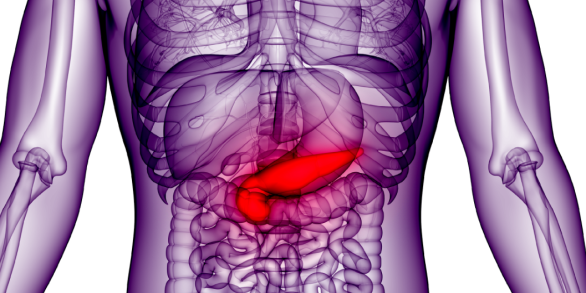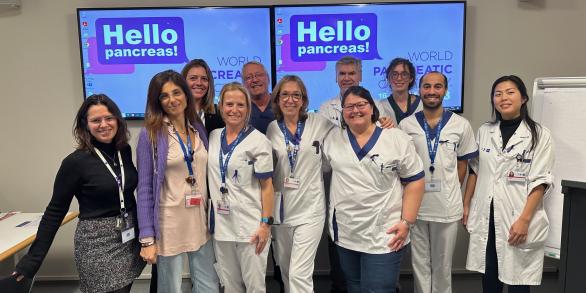We're hiring ! Join us and make a difference in our hospitals
Pancreatic cancer

What is pancreatic cancer?
Pancreatic cancer is the 4th cause of cancer deaths. In recent years the incidence of pancreatic cancer has continued to increase and today it accounts for 10-12 cases/100,000 persons.
Pancreatic cancer develops from pre-cancerous lesions some of which are in the form of pancreatic cysts. Together with certain family factors, risk factors for this cancer are smoking, diabetes, alcohol consumption and obesity.
Care
At our institutions we have developed a Fast Track care pathway for screening/diagnosing pancreatic cancer in all persons presenting a clinical (unexplained weight loss, jaundice, abdominal pain, decompensated diabetes) or radiological suspicion of cancer as well as for persons screened who are at increased risk of pancreatic cancer (family history, chronic hereditary pancreatitis). Following a pancreatic cancer diagnosis a complete medical check-up is carried out and the results discussed at a multidisciplinary meeting so as to decide on the line of treatment. If the pancreatic cancer is considered to be localised and resectable, pancreatic surgery can be envisaged, possibly following induction treatment (chemotherapy +/- radiotherapy). If it is non-resectable or metastatic, chemotherapy is proposed, possibly in the framework of study protocols.
In Belgium, pancreatic surgery has been centralised since July 2019 at 15 experienced hospitals (including 6 French-speaking hospitals) with a high volume of pancreatic interventions so as to improve the care quality. The Erasmus Hospital is the leading French-speaking hospital in terms of the annual number of pancreatic surgery operations.
Research
The HUB is active in developing new treatment approaches and initiated a multicentric study ((STEREOPAC) to assess the impact of stereotaxic radiotherapy (radiotherapy targeted at the tumour) following neoadjuvant chemotherapy in the case of localised pancreatic cancer .The Digestive Oncology Department is linked to the Laboratory of Experimental Gastroenterology (LGE) of the ULB’s Faculty of Medicine and to the Jules Bordet Institute’s GI Lab where a number of research projects are carried out, in particular on the immune-molecular impact of pancreatic cancer treatment.
A number of our doctors are members of various national and international groups of experts, namely : the Belgian Group of Digestive Oncology, the Belgian Pancreatic Group, the Belgian Pancreatic Cancer Group, the European Society of Digestive Oncology and the European Society of Gastrointestinal Endoscopy.
Our specialists







Multidisciplinary bilio-pancreatic pathology group
Associated services
Publications
Preoperative treatment with mFFX or GemNab and iHDSBRT (STEREOPAC trial)
- Authors : Bouchart et al
- Journal : BMC Cancer
NAC associated with iHD-SBRT does not increase complications after PD
- Authors : Navez J et al
- Journal : J Surg Oncol
Stratification of Pancreatic Ductal Adenocarcinomas Based on Tumor and Microenvironment Features
- Authors : Puleo et al
- Journal : Gastroenterology
Assessment of response to chemotherapy in pancreatic ductal adenocarcinoma: Comparison between diffusion-weighted MR quantitative parameters and RECIST
- Authors : Bali et al
- Journal : Eur J Radiol